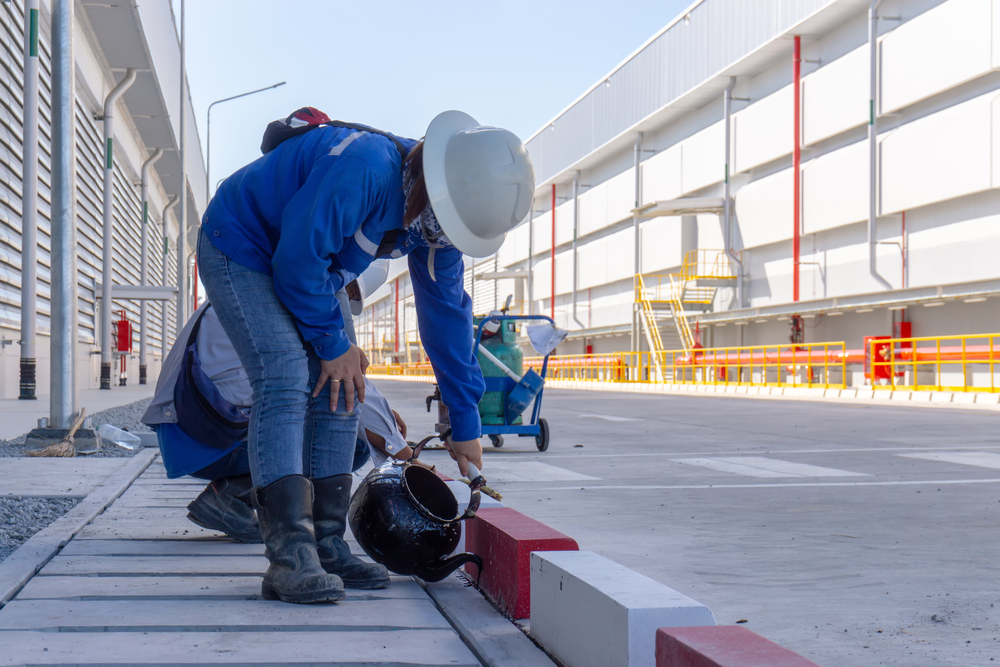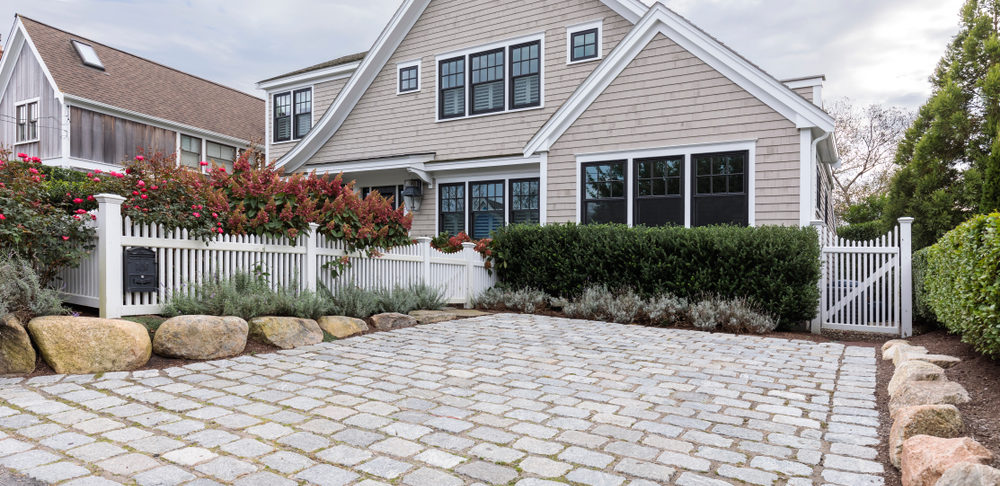You’ve finally done it. You’ve replaced that old, cracked asphalt driveway with a beautiful new concrete one. It’s durable, low maintenance, and looks great. It’s everything you’d hoped. Now that that’s done, you’ll never have to worry about your driveway again, right?
Not so fast. Do you need to seal concrete? Even though concrete stands up to the elements better than asphalt, it’s still susceptible to sun, rain, and snow damage over time. Concrete is a tough material that doesn’t require sealing. But, really, Do you need to seal concrete? The sealant does help extend its lifespan and protect your investment. It’s well worth the effort to keep your new driveway looking its best for years to come.
Do You Need to Seal Concrete?
Concrete is durable enough to withstand the weather without sealant, but that doesn’t mean it won’t benefit from a little extra protection and care. The sealant creates a barrier between your concrete and the elements, preventing water, ice, dirt, and other debris from seeping in and wreaking havoc on all your hard work.
Sealing a concrete driveway also helps prevent fading, cracking, and chipping along the surface. These problems arise when moisture gets into the concrete and causes it to expand and contract as the temperature changes. Over time, this causes the concrete to weaken and break down, leading to severe damage that’s costly to repair.
Applying sealant to your concrete driveway is particularly beneficial if you live in an area with harsh winters. This process helps protect it from wintery conditions, including snow, ice, and salt. As many know, salt is particularly damaging to concrete, so sealing your driveway is a smart way to extend its lifespan if you live in a colder climate.
Is Sealing Concrete Necessary?
Concrete possesses the ability to withstand typical deterioration factors, such as weather conditions and abrasion. It’s a real MVP at resisting humidity and rain damage, ultraviolet radiation, and erosion caused by typical weather, so is sealing concrete necessary?
An unsealed concrete driveway in an area with high salt usage and harsh conditions will only last about ten years before it needs to be replaced. For comparison, a sealed concrete driveway can last up to 25 years, sometimes longer. So, is sealing concrete necessary? While sealing your concrete driveway isn’t strictly necessary, we highly recommend it if you want to keep it in tip-top shape.
Should You Seal Concrete Driveways?

Concrete makes an excellent driveway, but should you seal concrete driveways? We vote yes! If you want to give your concrete driveway a long life and keep it looking its best, seal it. Sealing a concrete driveway is a simple and easy way to protect your investment from the elements. Not to mention, it’s much cheaper to seal your driveway every few years than it is to repair or replace it down the line.
When you seal a concrete driveway, you create a protective layer between the concrete and anything that could harm it. For example, this barrier repels moisture, the single most damaging element to concrete driveways. When you keep the water out, you ensure the concrete doesn’t develop any ugly cracks or chips.
So, should you seal concrete driveways? Sealing your concrete driveway also helps prevent fading and unsightly stains, the way proper care can during each season. The sealant is an invisible shield that guards against anything from oil and gas to organic matter from trees and other potential driveway stains. As a result, your concrete will maintain its original color and finish for years to come.
What Are the Cons of Sealing a Concrete Driveway?
The main reason homeowners choose not to seal their concrete driveways is that it’s an extra expense. They may ask themselves, “is sealing concrete necessary?” We believe the benefits of sealing far outweigh the cost. That being said, there are a few things to keep in mind before you decide to seal your driveway.
First, remember that concrete sealer needs to be reapplied every five years to remain effective. Fair warning: this can be a bit of a hassle if you choose to do it yourself. But, if you have it professionally done, the process is relatively quick and painless, allowing you to enjoy the benefits of a sealed driveway without any headaches.
Another thing to consider is that sealed driveways can sometimes be slippery, especially when wet. This potential hazard is problematic if you live in an area with regular rainfall, as driveways are high-traffic areas. However, there are special sealers available that offer anti-skid properties to help mitigate this issue.
Do I Need to Seal Concrete Patios?
Have you found yourself Googling, “do I need to seal concrete patios?” A concrete patio is an attractive, low-maintenance addition to any home, whether it’s in the front yard or back yard. Still, you can help keep it in good condition by sealing it every few years. Sealing a concrete patio helps protect it from the same elements that threaten concrete driveways, which can cause fading, cracking, and chipping over time. Moreover, it’s a simple and easy way to keep your patio looking like the outdoor oasis you want.
Sealing a concrete patio is also the best way to avoid accidental staining. Spills from BBQs, Friday night cocktails, plants, and other unexpected sources are no match for a well-sealed patio. Plus, the sealant provides extra protection against unpredictable weather, so your patio can withstand even the harshest conditions.
Do I Need to Seal Concrete Curbing?

Similarly, are you wondering, “do I need to seal concrete curbing?” Like concrete driveways and patios, concrete curbing is also susceptible to damage from the elements. Curbing is often used in landscaping around gardens, flower beds, and lawns. Over time, it can develop cracks and chips from sun, wind, rain, and snow exposure. Sealing concrete curbing helps protect it from these elements and extends its lifespan.
Sealing concrete curbing makes it easier to clean. Curbing that isn’t sealed can absorb spills and dirt, which can be challenging to remove. A quality sealant keeps curbing looking clean and new, even after years of exposure to the elements. How’s that for curb appeal?
Looking for Concrete Sealing?
Do you need to seal concrete? To continue enjoying your beautiful, low-maintenance concrete driveway, we recommend sealing it every few years to keep it looking its best. While concrete is notoriously durable, it’s not entirely immune to the elements. Sealing your driveway is an effective way to prolong its lifespan and keep it looking new.
And if you’re still unsure whether to seal your concrete driveway, why not give us a call? We’re ready to answer any burning questions you might have and help you make the best decision for your home.





